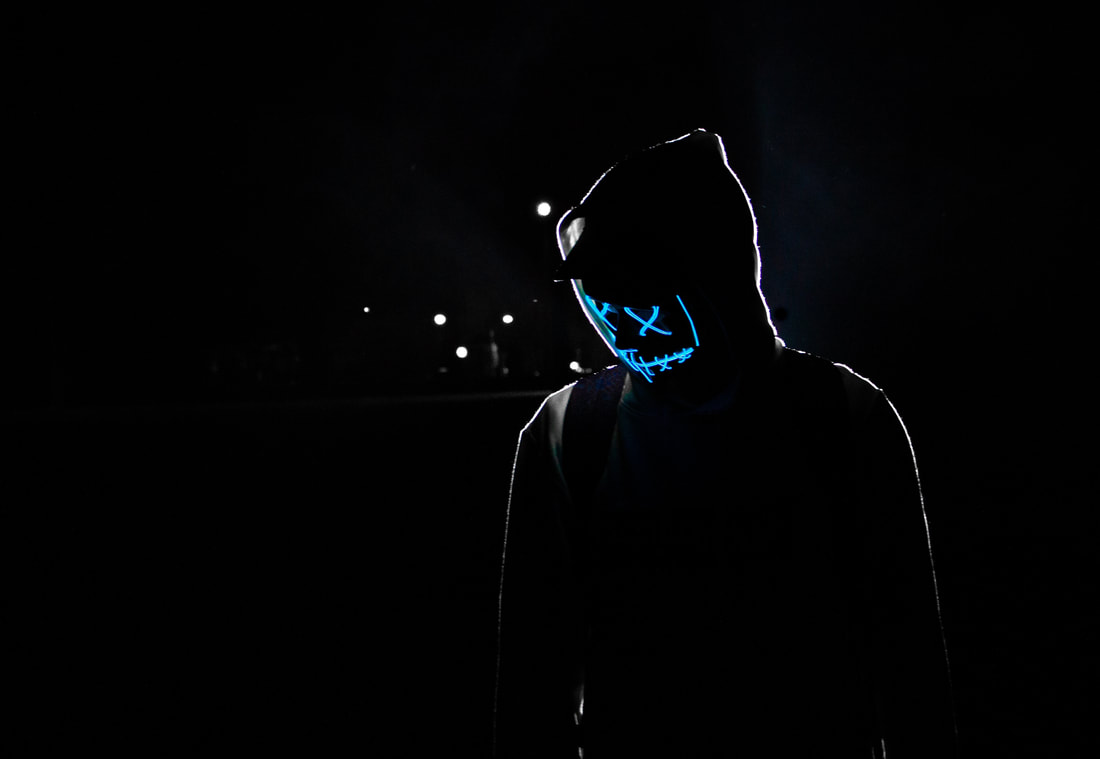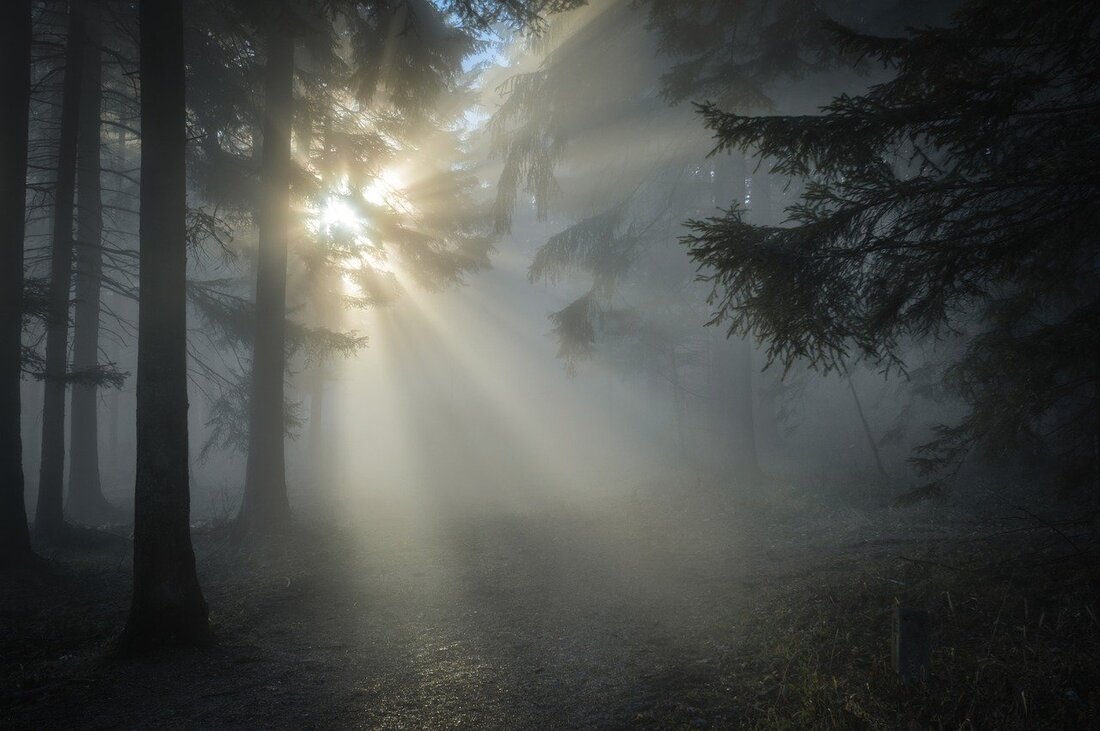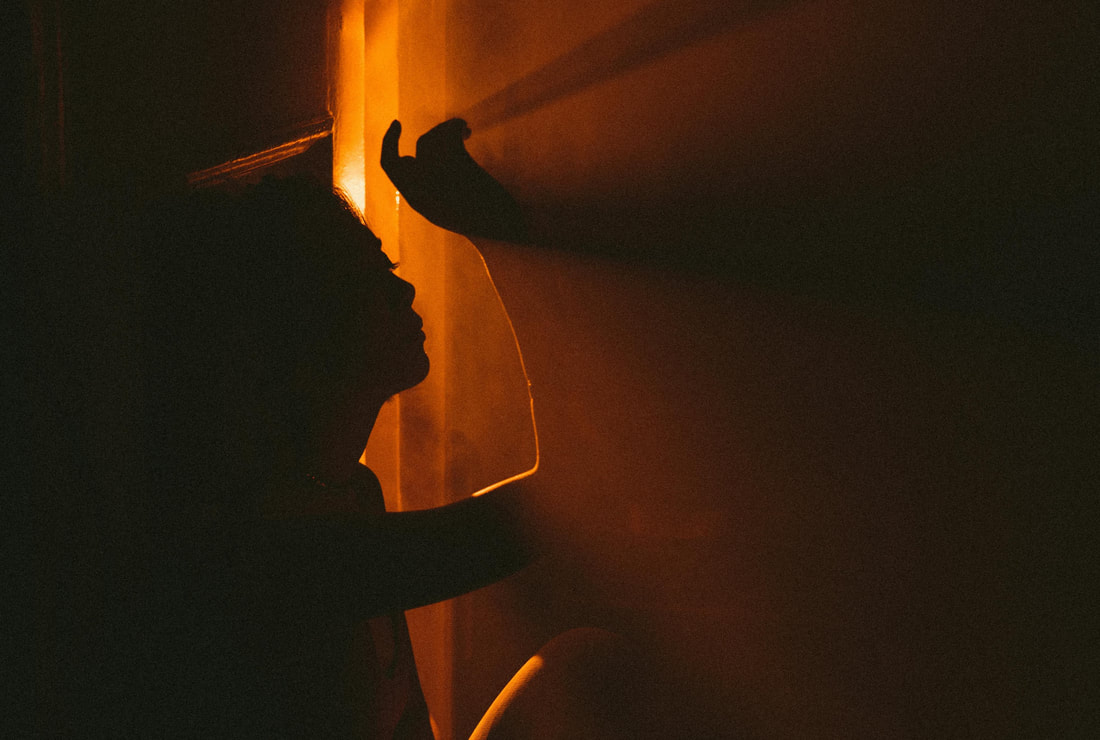|
‘The people living in darkness have seen a great Light; on those living in the land of the shadow of death, a Light has dawned.’ (Matthew 4:16, the Bible) ‘Death is a thick black wall, against which every soul is hurled and shattered.’ I don’t now remember who said that, but I do remember my philosophy lecturer quoting it when we studied existentialism. These are very dark words indeed and have, for me, a deeply foreboding and chilling feel to them. I sat down and avidly wrote an essay in response, doing my best to present what, I believed, were convincing rational arguments to counter such a nihilistic and hope-less outlook. When I got my paper back, the mark was nowhere near as high as I had hoped for or expected. The lecturer had commented simply yet profoundly that an existentialist writer would have absolutely no interest in my reasoning. It’s not about objectivity or logic. It’s about how it is and feels to be in the world; a phenomenological cry of angst in the face of fragile, fathomless, futility. It was as if, in my attempt to offer ‘correct’ thinking, I had totally missed the point. It never was about thinking. As the years have passed by, I too have known that angst, at a times an almost irresistible magnetic-like pull towards my own death. Sometimes, it has felt like half-clinging on weakly to avoid being pulled over the edge. In the face of unbearable and irreparable heartbreak, suicide can feel like a least-painful solution. Tom Walker’s moving song, Leave a Light On has deep emotional resonance here. Jesus is my life-saving Light. ‘At the end of the day, it’s either God or death.’ (James Wallace). Whatever Advent means to you, Light shines in darkness. Hold onto hope.
22 Comments
Advent is – arrival. I bought an Advent calendar for some refugee friends in the UK recently. It was the first time they had seen one and they were intrigued by its idea of opening numbered doors, or windows, as a countdown…to what? For followers of Jesus, the deeper question is to Who. Advent signals the arrival of Jesus in the world, the Saviour who shines dazzling-divine light and dispels spiritual darkness. It’s a celebration, anticipation and invitation to radical faith, love and hope. Jasmin, a Filipina, spoke today – a voice of the poor, a lived experience of the poor, from among the poor: ‘The poor feel invisible. To discover that God sees us, that he truly loves us, is the greatest gift.’ She’s working hard to provide Christmas gifts for children in a slum community who live beside an open sewer, whose makeshift homes were burnt down in a fire last week. She lives Advent by arriving with Jesus in dark places so that the poor and vulnerable experience God’s love as real. Whatever Advent means to you this Christmas: Light shines in darkness. Remember the poor. ‘To the existentialist, life is like a small child, lost and alone in a deep, dark forest. And the child means nothing to the forest.’ (Peter Hicks) Hicks’ bleak depiction of the human condition, of an unresolvable existential angst that we face and experience as we find ourselves thrown into this world, is a despairing vision of life without hope. It reflects vividly Jürgen Moltmann’s view that ‘hell is hopelessness’. Yannick Jacob comments that, ‘there is a way to live without this anxiety, at least temporarily, by deceiving ourselves, by closing our eyes to some of the realities of our existence.’ It’s as if we can numb the pain, make ourselves feel better for a time, by distracting ourselves, or drugging ourselves, to feel safer and more alive. This is, perhaps, a deep root cause of addictive behaviours, of aligning ourselves with extreme positions, of engaging in some forms of extreme sports or of taking medication that seeks to dampen our too-painful-to-handle thoughts and feelings. Instead of being willing to pause, pray and peel back the curtains to reveal what may lay behind our personal and cultural actions and routines, we grip and hold them tightly shut. Over a lifetime, we glue them, stitch them and tape them together. We build barricades to support them, reinforce them and hide them, even to ourselves. Out of sight, out of mind. At least for a while. Sooner or later, we may inadvertently catch a glimpse, experience an unnerving feeling, find ourselves fighting, falling or failing as the walls creak, crack and start to crumble down. It could be sparked by an accident, a break-up, a failed promotion, an illness, a mid-life crisis, a war. Our defences are weakened, no longer able to withstand the swirling, turbulent pressures that have built up behind them. It’s as if suddenly, as if by a flash of lightning, everything is revealed. Our self-assured confidence collapses and, perhaps for the first time, we experience terrifying vulnerability. This is the existential backdrop to the Christmas story: an intensely dark crisis that can’t be resolved with a quick-fix solution. For followers of Jesus, it’s a piercing and dazzling hope-filled account of a profoundly transformational encounter between God and humanity, where God takes the first step and enters our reality. When the Bible says ‘Light shines in darkness’, we catch a glimpse of radiant light, life and love now made possible. Whatever your experience as a coach, whatever the experience of your clients in 2021 – let’s face truth gently, with courage and humility – and make hope real. We walked past this little girl each day. She had the most beautiful smile. She worked at the front of a shop in the Philippines in a poor area, hoping that someone might stop and buy. She was very poor but never asked anything. She simply…smiled. I asked the Filipina I was walking with if we could buy this girl something special for Christmas. We did, and then returned to hand it to her. ‘This is a gift from Jesus, to thank you for the gift of your smile!’ She looked stunned, bemused and amazed. Her Mum, dressed in rags, teased us playfully. ‘Haven’t you brought me a gift too? Or are you saying my smile isn’t cute enough?!’ We all laughed. It was a moment of joy. We returned the next day and the little girl now ran up to us, brimming with excitement. She told us she had shared the chocolates with her younger brothers, but asked if it would be OK to save the baseball cap until Christmas. ‘I’ve never had a gift before, and I’d love to be able to unwrap a gift on Christmas Day!’ I almost cried. Whatever Christmas means for you this year: Light shines in darkness. Remember the poor. ‘Work-life balance’. What's that all about? Picture this: I have my work perched at one end of the see-saw that somehow represents my life and my…erm…my life perched precariously at the other. On the face of it, it signifies that my work is completely and utterly devoid of anything that comes close to life and, similarly, that my life is hermetically sealed off from work. I guess I could re-draw the image so that there’s a blurry, permeable bit between the two ends but, even so, it still depicts my work and my life as a polarity, distinctly different and at opposite ends of a spectrum.
OK, I’m being a bit playful here. I get the idea – to help ensure that we pay attention to different aspects of our lives, in particular to avoid work taking over our whole lives. There are echoes of biblical principles of Sabbath in this, safeguarding a space for spiritual, psychological, physical and social refreshment, enrichment and restoration. It poses important questions in modern day, post-modern life, especially against a backdrop of increasing mental and physical health costs of a non-stop lifestyle, e.g. how to do ‘Sabbath’ meaningfully in the midst of 24hr connectivity? Post script: Now here’s a weird thing. When I typed ‘work-life’ into my phone, it auto-corrected to ‘worm-like’. I know what you’re thinking: I really need to get out more – and you may well be right. But what occurs to me is that a worm lives most of its life inside a tunnel in total, relentless darkness. By contrast, there’s something for us here about how to discover and create light, freedom, meaning and purpose in whoever we are, in whatever we are doing. The question then is how to be alive in its widest, deepest, most holistic sense in all aspects of our lives - including in our work. How do we do it? Ouch. Sooner or later, something hits us in life. It could be a broken relationship, an accident, loss of employment, sudden ill health. It could be anything. But we know it when it hits us. The impact can feel physical like a thud to the chest, a sharp pain that leaves us gasping for breath. It hurts, it aches…and, for a time, it disorientates everything we know, believe, expected or hoped for. It can leave us spinning, angry, scared, numb. We feel vulnerable. We may feel anxiety, despair. You do know it if you’ve had this experience. You may be having it now. The usual optimism and positive thinking that have served you so well in the past suddenly feel empty, shallow somehow, lacking substance. You reach out for help but if feels like grasping at thin, intangible mist. All you know is a persistent, uneasy, gnawing feeling, deep inside and the light of hope looks hopelessly dim. Family and friends offer support but, in the midst of it you feel – alone. Painfully…alone. It’s moments like these where existential and spiritual questions may come sharply into view. I’ve know that feeling of falling, sinking, so deep that I thought I would drown. It felt like slipping into deep darkness, overwhelmed by a pain-filled fear. I couldn’t see a way to stay alive. Sitting on a fence in a cold field one night, all I could discern was a feint pin prick of light in the farthest distance. I tried hard to cling on, however weakly. That night, I discovered the light was - Jesus. |
Nick WrightI'm a psychological coach, trainer and OD consultant. Curious to discover how can I help you? Get in touch! Like what you read? Simply enter your email address below to receive regular blog updates!
|








 RSS Feed
RSS Feed